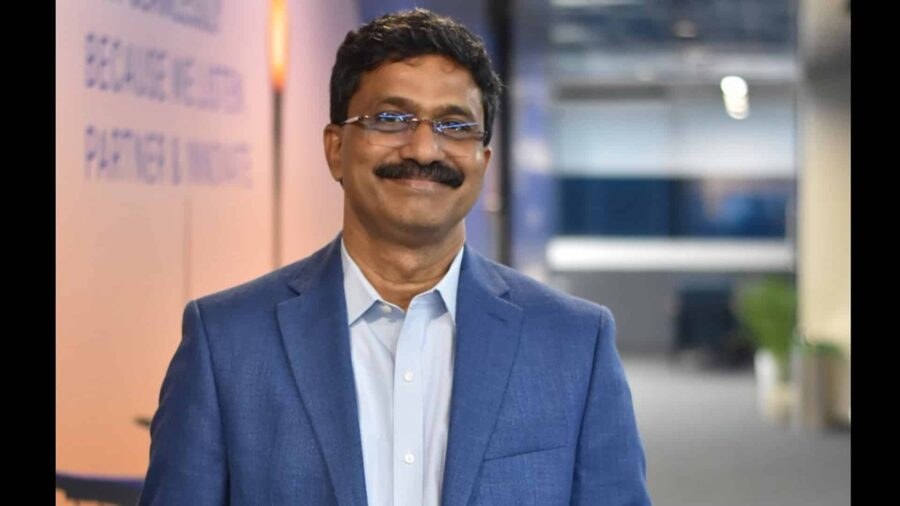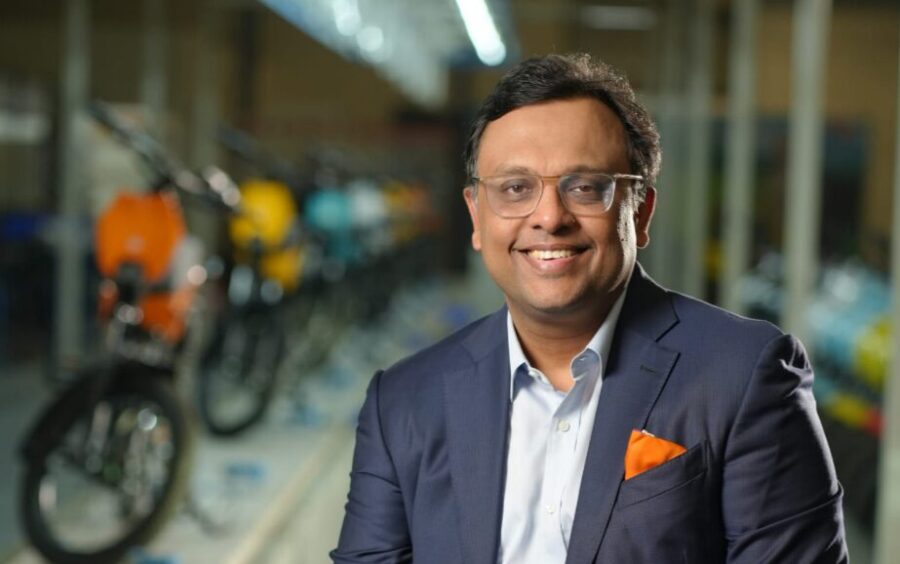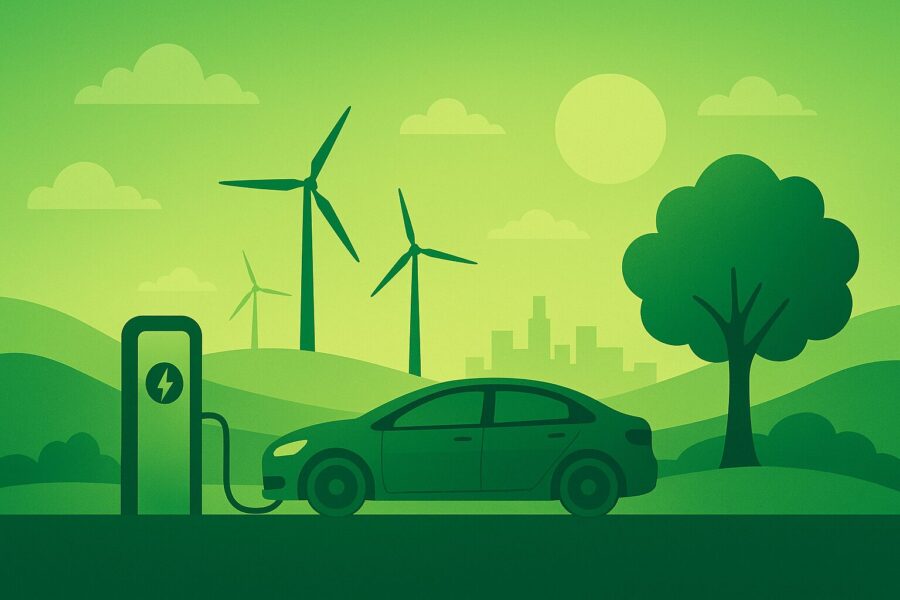Overview
- Industry pioneers highlight the progress and challenges in EV adoption
- Focus on sustainability, last-mile electrification, and storage solutions
- Policy support and innovation seen as key growth drivers
- Shared commitment to building a cleaner, carbon-neutral future
Introduction
World EV Day is not just about celebrating electric mobility — it’s about reflecting on the progress made, the challenges that remain, and the collective vision that industry leaders hold for the future. On this occasion, thought leaders from India’s EV and clean energy ecosystem shared their perspectives, underlining how electric mobility is transforming from a technological shift into a social and environmental revolution.
Ms. Suman Mishra, Managing Director & CEO, Mahindra Last Mile Mobility Ltd.
“Affordable and accessible sustainable last mile mobility can help India achieve the twin purposes of economic growth and environmental well-being. At Mahindra Last Mile Mobility Limited, we are proud that our 2.7 lakh plus electric commercial vehicles have clocked 4.5 billion kilometres, preventing more than 185 kilo metric tonnes of CO₂ emissions — an impact equivalent to planting 4.3 million trees. On this World EV Day, we reaffirm our commitment to accelerating India’s last-mile electrification movement, making sustainable mobility both attainable and transformative for all.”

Mr. Uday Narang, Founder & Chairman, Omega Seiki Mobility
“On this World EV Day, I extend greetings to the business community and startups driving green mobility. Over the past year, India’s EV sector has moved from experimentation to consolidation, with stronger players and sustainable models emerging. It is encouraging to see the BJP-led government and leaders like CM Mohan Yadav of Madhya Pradesh unveiling progressive EV policies, infrastructure incentives, and skill programs to make India a global EV hub. EV three-wheelers, both passenger and cargo, along with new-age electric trucks — especially in the 1-1.5 ton category — will be the real growth drivers of this market, powering clean last-mile and mid-mile logistics. The future of mobility is about building green businesses that deliver value to society, economy, and the planet — and together, we must accelerate this journey towards a cleaner tomorrow.”

Mr. Piyush Goyal, Co-Founder & CEO, Volks Energie
“What started as a symbolic initiative 5 years back, today has turned into a global movement as the world today collectively and rapidly moves toward large-scale adoption of clean mobility and sustainable energy. This adoption reflects not only a technological change and preference, but also a shift in the societal expectations from the automotive and renewable industries overall. Consumers today demand cleaner and more resilient energy systems. At Volks Energie we recognise the evolution in energy storage and the Battery Energy Storage Systems (BESS) as one of the most critical drivers of this change. One of the biggest roadblocks to the mass adoption of EVs was the lingering fear regarding battery efficiencies and the associated ecosystem, for which our core focus has always been to ensure that no unit of generated renewable power goes wasted and is stored and deployed in the most efficient manner to power not just EVs but the whole sustainable lifestyle. With India rapidly scaling and powering towards its push to become a global energy leader, we remain committed to deliver solutions that make EV adoption viable and responsible. The future of mobility is truly electric and energy storage remains the key to deliver that future.”

Mr. Manish Dabkara, Chairman & Managing Director, EKI Energy Services, and President, Carbon Markets Association of India
“This World EV Day is a reminder to all that while the focus lies on the future of mobility, accountability must share the spotlight. There needs to be a combined vision and shared understanding that EVs are not just for transportation, they are true vehicles of change to reduce carbon emissions and move the global needle towards net-zero. At EKI, we truly believe that true impact will be achieved not when millions drive EVs, but when every kilometer driven is a move forward towards climate neutrality. EVs need to be integrated into the larger ecosystem. For every vehicle on the road, we need to be able to verify the carbon-positive impact of every action that got it there. It is critical to have frameworks around sustainable finance, carbon credits and verified emissions. We at EKI remain committed to building an ecosystem where every journey brings us closer to climate neutrality.”

Mr. Naresh Kumar, COO, Lauritz Knudsen
“India’s mobility transformation is entering a decisive phase, with electric vehicles at the forefront of this clean energy transition. At Lauritz Knudsen, we see EVs not just as a greener alternative to conventional transport, but as a powerful driver of systemic change—accelerating climate action, fostering innovation, and advancing a more sustainable, efficient, and inclusive future. The government’s recent decision to maintain GST at 5% on EVs further strengthens this momentum, signalling a clear commitment to clean mobility. As part of this journey, Lauritz Knudsen is investing in future-ready EV charging infrastructure and smart energy solutions that make adoption more accessible, affordable, and reliable for all. Our focus is on supporting intelligent, scalable charging systems for homes, workplaces, commercial spaces, and public areas—backed by cutting-edge technology and adherence to the highest safety standards. Our ambition is to forge strong partnerships across the mobility ecosystem, helping reduce barriers and accelerate adoption in line with India’s 2030 clean energy and mobility goals. For us, this is not just about powering vehicles—it is about powering change. Lauritz Knudsen believes in powering a non-stop India—by being future-ready, building inclusive innovation, and enabling every journey that can take us closer to a greener, smarter New India.”

Mr. Chetan Maini, Co-founder and Chairman, SUN Mobility
” As we celebrate World EV Day 2025, it’s inspiring to see electric mobility scaling at unprecedented pace. Millions of kilometers are now driven on EVs monthly, enabled by expanding charging and battery swapping networks, directly reducing carbon emissions and creating cleaner air. While India’s EV penetration is still in single digits, we are catching up to global leaders like China and parts of Europe, where 30% to 40% of new sales are EVs. We are building strong momentum in segments such as 3-wheelers, with EVs capturing over 50% of new sales. These figures highlight both the strides we’ve made and the distance we must cover. Collaboration between manufacturers, energy providers, and policymakers is driving sustainable mobility forward. However, to achieve the Government’s 30% EV penetration target by 2030, policy support must match industry ambition. Critical levers include continued tax incentives and a rationalized GST regime on batteries, vehicles and charging & swapping services to enhance affordability and accelerate adoption across all vehicle segments. This transformation reflects our collective commitment to reducing fossil fuel dependence and building a cleaner, sustainable future for generations to come”

Mr. Anurag Choudhary, CMD & CEO- Himadri Speciality Chemical Ltd
“The global electric vehicle (EV) market is accelerating at an unprecedented pace, reshaping the future of mobility and energy across the world. This momentum continues in 2025, with sales projected to surpass past global records and this growth is driven by supportive policies, improved technology, and expanding consumer demand. For Himadri Speciality Chemical Ltd, these robust global dynamics represent an extraordinary growth opportunity. As a pioneer in the manufacturing of lithium-ion battery components, especially in LFP cathode active materials and advanced silicon carbon anode technology, Himadri is strategically positioned to supply the materials essential for powering this EV revolution. Our investment in setting up the world’s first commercial LFP cathode active materials plant outside China and partnerships with global innovators like Sicona Battery Technologies (Australia) and Internal Battery Company (USA) reflects our readiness to meet growing demand for next-gen sustainable battery solutions. India is uniquely poised to become a credible anchor in the global electric vehicle revolution. With EV penetration on the rise and strong government initiatives driving adoption and manufacturing, the country is set to transition from being primarily a consumer of electric vehicles domestically to a key contributor in the global EV ecosystem. This transformation demands foresight to invest not only in current technologies but also in the innovative solutions that will define the vehicles of tomorrow. Himadri’s capabilities in manufacturing battery materials support this journey, enabling India to build a self-reliant EV supply chain that strengthens energy security and drives industrial growth. By fostering domestic production, we are reducing import dependence, creating employment, and stimulating technological innovation. Additionally, our research work in the areas of developing battery recycling technologies aligns with India’s sustainability goals, promoting a circular future. As EV adoption accelerates worldwide, Himadri Speciality Chemical Ltd remains committed to being a key enabler of this sustainable mobility future- harnessing innovation to power India and the world toward a greener tomorrow.”

Mr. Tushar Choudhary, Founder & CEO , Motovolt Mobility.
“The need for affordable and reliable passenger and goods mobility is growing as traffic congestion, air pollution, and the pursuit of a decarbonised society intensify. A large portion of this demand comes from the last-mile delivery space, which is expected to reach around 10 billion by FY30. Government initiatives like the PM E-DRIVE scheme are reducing reliance on fossil fuels and highlighting the need for robust charging infrastructure. We believe battery-swapping and electric 2W Mobility-as-a-Service (E2W-MaaS) will provide cost savings, faster turnaround for deliveries, and operational flexibility. These solutions not only empower individual gig workers but also benefit the booming e-commerce industry, supporting the country’s broader economic goals.”

Conclusion
World EV Day 2025 has brought together powerful voices from across the EV spectrum — from manufacturers and innovators to clean energy leaders. Their words echo a common message: electric mobility is not just about vehicles, but about reshaping economies, societies, and the environment. As India accelerates towards a cleaner tomorrow, these commitments remind us that the EV revolution is a shared journey — one where every step forward leaves a lasting impact.

